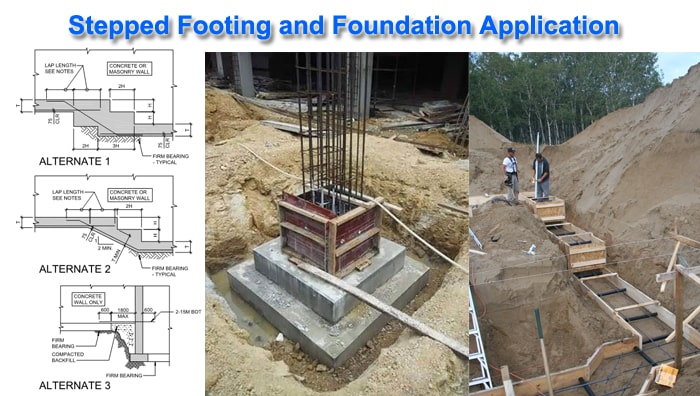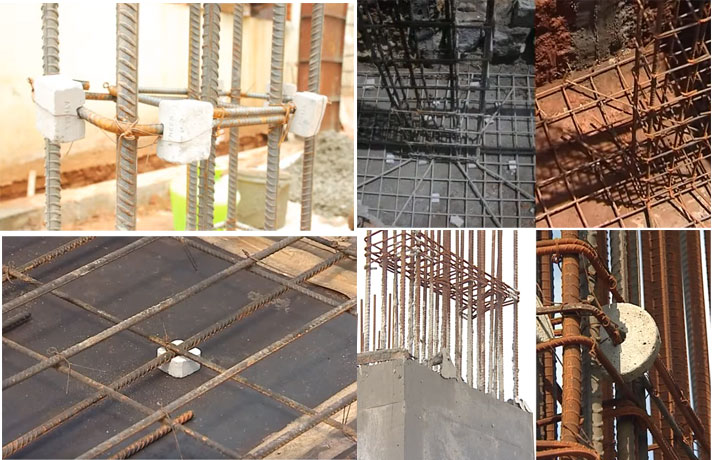Stepped Footing Details | Stepped Foundation Reasons and Application
This article will guide you through what is stepped foundation and footings. How to construct the house on a slope land area using stepped foundation.
The foundation’s primary duty is to sustain the Structures and to convey the superimposed load of the Structures to the strata underneath them.
It is generally advised that foundations be built on a flat or smooth surface of the ground. There are several locations where a flat surface is not possible.
On slope sites, we may need to build a foundation in some circumstances. For the construction of a foundation on a slope, it is critical that thorough design and planning be carried out.
Stepping foundations on a regular basis also prevent abrupt and excessive changes in level, which could lead to a weakening and movement. Similarly, stepping should be used to avoid abrupt and excessive increases in foundation depths at corners and intersections.
Each step in the foundation should be no more than the foundation’s thickness. The higher-level foundation should also overlap the lower-level foundation by at least twice the step’s height, or by the foundation’s thickness, or by at least 300 mm (whichever is greatest).
Drainage must be planned properly to avoid the risk of instability caused by building water pressure.

The Reason for Providing Structures with Stepped Foundations:
- The foundation’s primary role is to transmit the structure’s load into the subterranean strata.
- The foundation aids in the construction of the buildings by providing a flat surface.
- It will aid in the prevention of any lateral structural movement.
- To prevent the vehicle from sliding and toppling.
- To avoid a disparity in the settlement.
How do you construct a stepped foundation on a slope?
The foundation of the structure is one of the most significant aspects of the construction, and it should be built flawlessly with proper foundation design and planning.
One of the foundation’s primary functions is to transfer entire load from the superstructure to the strata underneath it.
In most cases, while building structures on flat ground, we use simple types of isolated or individual footing.
Building a sturdy foundation on a sloping property is extremely tough and challenging. Many of the sites in the hilly area need us to construct a foundation on a slope.
How to create a foundation on a slope is one of the most difficult aspects for engineers.
When a natural slope is not available, stepped foundations are the most appropriate type of foundation to use.
Stepped footing is another name for the stepped foundation. Stepped footing is one of the most cost-effective ways to construct a foundation on a slope.
The Stepped Footing is made up of a series of concrete steps that are erected in a horizontal manner on the ground’s sloping surface.
This form of stepped foundation is commonly utilized to save money on the excavation costs associated with building a foundation on a slope.
Site conditions completed grade elevations, finished wall slope, and other steel bar placement and construction challenges all influence the use of stepped footings.




